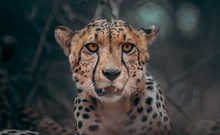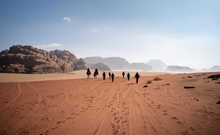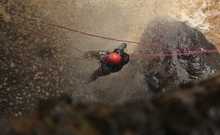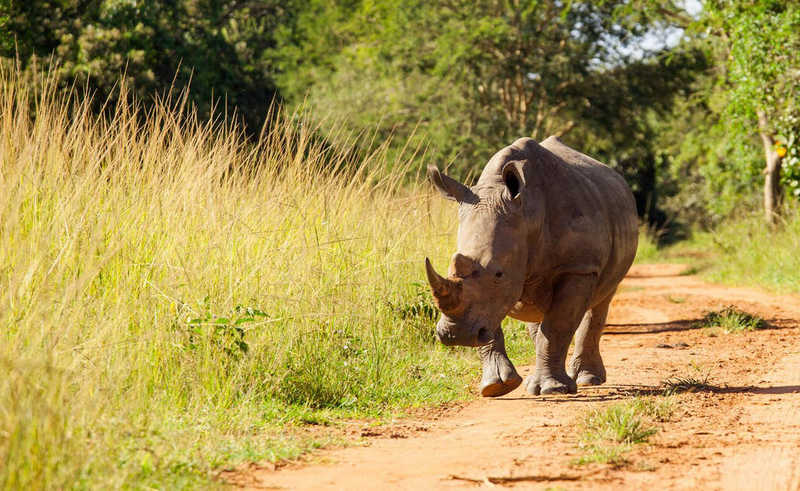Gorilla Trekking in Uganda
- Kandoo Safaris
- Kandoo Trekking
- Kandoo Multi-activity

Contact
our UK team



All trekkers need to organise their own flights to Entebbe International Airport (EBB). At EBB, you will be met by a member of our team and transferred to your hotel. Early the next morning you will meet your local Kandoo representative and have a full pre-trip briefing .
After breakfast this morning we meet the rest of the group and have a pre-trip briefing at our hotel. This is usually held at 7am so it will be an early start this morning. We then hop into our private 4x4 vehicle and make the long drive to Kibale Forest. As this is a 6 hour journey, we stop on route to visit several points of interest and stretch our legs, keeping our eyes peeled for the primates that inhabit these areas. Upon arrival in Kibale, we can have a wander around the local community, immersing ourselves in the eclectic traditions and culture of the local people.
Kibale Forest showcases spectacular jungle and is known worldwide for its incredible range of primates; from chimps and baboons to colobus monkeys and grey cheeked mangabey, the sights and sounds we can experience beneath the canopy are unrivalled.
This morning we head out into the lush canopy of the rainforest to track our inquisitive Chimpanzee neighbours. Depending on how long it takes us to track them down, we may have time to go on the Bigodi Swamp Walk, a delve into a wildlife corridor rich in diversity. Famed for its birdlife such as the Great-blue Turaco and Yellow-billed Barbet, the Bigodi Swamps are also home to Sitatungas, Bushbucks, wild pigs and otters. We then return to our lodge and spend the evening relaxing and reflecting on our wildlife encounters.
This morning we have the option to do a second chimpanzee trekking experience before transferring to Queen Elizabeth National Park, passing the equator on route. Queen Elizabeth is one of the best places in Uganda to see lions, so keep your eyes peeled. In the afternoon, we head out on a game drive in our comfortable vehicle, to view herds of elephants, hippos, crocodiles, buffalo and leopards, to name a few of the many wildlife encounters possible in this region.
This morning we explore the Queen Elizabeth National Park in our comfortable, private 4x4 vehicles; expect to see lions, elephants, hippos, crocodiles, buffaloes and leopards. This afternoon, we then head out on the water, taking a boat trip on the Kazinga Channel; one of the highlights of Uganda and the area with the highest concentration of hippos.
After breakfast, we make a steady drive through Queen Elizabeth National Park to the Ishasha region in the South. Ishasha is famous for it's elusive, tree climbing lions and we head out on a game drive in the afternoon to see if we can spot these magnificent beasts. Tamer wildlife spotting opportunities in Ishasha include Topis, not found anywhere else in this National Park, and Ugandan kobs, a member of the deer family similar to an impala.
This morning starts with an early morning game drive in Ishasha before driving to Bwindi Impenetrable Forest National Park. On our way we pass through some interesting villages and are provided with breath -taking views of the mountains.
Bwindi Impenetrable Forest is a unique jungle, home to a wide variety of monkey species. It is also one of the only two places in the world where you can find Mountain Gorillas! These gentle giants are heavily protected and guests into their home are only allowed limited time spent with the gorillas to reduce their exposure to human diseases and customs that can endanger them. The lodge we use in Bwindi will depend on the group of gorillas we track.
Today is the day! It's time to do some Gorilla tracking. An early morning departure with our ranger will see us following a seemingly, ambiguous trail to search for one of the world’s most interesting and endangered animals. The rangers in depth knowledge of these creatures brings us up close and personal with them in their day-to-day life. We are permitted to spend one hour here, observing their behaviours. An experience you will never forget. This afternoon we return to our lodge and spend some time soaking up such an incredible location.
This morning, after breakfast, we head out on a walk into the depths of the rainforest. Whereas yesterday we focussed on finding the Gorillas, today we spend revelling in all the incredible wildlife that the jungle has to offer; Great Blue Turacos, L'hoests and Colobus monkeys rustle through leaves above, whilst tree frogs build their homes in the deep grooves of elephant prints underfoot.
We start today transferring to Lake Mburo National Park (2-3 hours drive). Lake Mburo is one of the 2 National Parks with zebras and the only National Park with impalas in Uganda. There are no elephants and lions, so walking safaris are possible here. This evening, we head out on a night game drive to give us the best chance of seeing leopards.
We begin today heading out on a walking safari. This allows us to really immerse ourselves with the animals and gain a completely new perspective on their lives. We then transfer to Entebbe in the afternoon, making a stopover at the Equator for photos on our way.
Transfer to the airport and flight home.
Water
Whilst on safari you will be provided with bottled mineral water.
You will need two bags for this trip. One main duffel bag which will be transferred with you in your safari vehicle each day. Please ensure this is no more than 23kg. Please note: Do not leave computers, tablets, cameras and valuable objects in your main bag. One 30-40L rucksack with a large chest strap that you will carry during the day. You will carry your own personal equipment (camera, waterproofs, water bottle, sun screen and valuables), as well as your packed lunch on some days, in your rucksack.
PLASTIC BAG BAN
Similar to many African countries, Uganda has introduced a ban on all single-use plastic bags. Please support this fight against plastic by using more sustainable alternatives in your luggage, such as packing cubes and dry bags. Passengers with plastic bags in their luggage may be asked to surrender them on arrival at the airport.
The zip-lock bags required to carry liquids and toiletries in cabin baggage on airplanes will still be permitted.
We will arrange transport from the airport to your hotel at
any time, including the late evening or early morning. When you arrive, you should look out for a member of our team who will either be holding a Kandoo Adventures sigh or a board displaying your name. The transfer takes
approximately 40 minutes. As flights into Entebbe tend to arrive around 10pm in
the evening, we would recommend planning in an additional rest day after such a
long flight to recover and prepare yourself and your kit for the trip, rather
than heading out straight away the next morning.
If you are changing airlines or re-checking your luggage
at an airport on route, please ensure you leave a minimum of 3
hours between flights. This will account for any delays on arrival,
travel time across airports (this can take longer than you think) and time
taken to re-check baggage.
Travelling Responsibly
Here at Kandoo, we like to support our guests to make their
travel more sustainable. As of 2025, we are offsetting the carbon on all of our
trips from your arrival in destination to drop off at the airport. As we don't
include flight travel in our trips these aren't included in our offsetting
calculations, so we are providing you with the calculator below for you to do
this yourselves.
Recommended tip amounts:
Safari guides and drivers: 35,000 –
40,000 UGX (equivalent to US$10 -15 / £7 – 12) per person per day
Chimpanzee guides and rangers: 35,000 –
40,000 per person per day
Safari lodge staff: 17,000 UGX
(equivalent to US$5 / £4) per person per stay
Whilst on safari, you will
be lead by your guide and accompanied by at least 2 rangers. This will vary
based on the size of your group. Tips should be given to your lead guide who
will share this with the others.
Safari lodges typically have
a central tip box in their reception area. It is preferred that these are used
rather than tipping individual staff.
Tips can be made in either
local currency or US$. Dollars should be crisp, untorn and less than 10 years
old.
UPPER BODY
LEGS
FEET
| From | To | Price | Availability | Book | Enquire |
|---|---|---|---|---|---|
| 17/01/2026 | 28/01/2026 | £4,099 $5,329 |
Available
|
Book now | Enquire now |
| 14/02/2026 | 25/02/2026 | £4,099 $5,329 |
Guaranteed
|
Book now | Enquire now |
| 13/06/2026 | 24/06/2026 | £4,099 $5,329 |
Available
|
Book now | Enquire now |
| 11/07/2026 | 22/07/2026 | £4,099 $5,329 |
Available
|
Book now | Enquire now |
| 08/08/2026 | 19/08/2026 | £4,099 $5,329 |
Available
|
Book now | Enquire now |
| 05/09/2026 | 16/09/2026 | £4,099 $5,329 |
Available
|
Book now | Enquire now |
| 18/12/2026 | 29/12/2026 | £4,099 $5,329 |
Available
|
Book now | Enquire now |
| 16/01/2027 | 27/01/2027 | £4,299 $5,549 |
Available
|
Book now | Enquire now |
| 13/02/2027 | 24/02/2027 | £4,299 $5,549 |
Available
|
Book now | Enquire now |
| 12/06/2027 | 23/06/2027 | £4,299 $5,549 |
Available
|
Book now | Enquire now |
| 10/07/2027 | 21/07/2027 | £4,299 $5,549 |
Available
|
Book now | Enquire now |
| 07/08/2027 | 18/08/2027 | £4,299 $5,549 |
Available
|
Book now | Enquire now |
| 04/09/2027 | 15/09/2027 | £4,299 $5,549 |
Available
|
Book now | Enquire now |
| 18/12/2027 | 29/12/2027 | £4,299 $5,549 |
Available
|
Book now | Enquire now |
Want to ask us a question or book a private trip? Don't hesitate to contact us!
Contact us